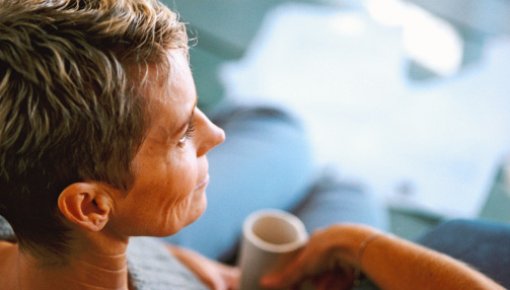I thought it was all in my head
A doctor once told me that this kind of pain is often a psychological issue, particularly in women who are career-driven and uncomfortable with their femininity. That stuck in my mind. I thought it was all in my head. During one conversation he mentioned that I also had cysts, which I was treated for. I guess that should have made my ears prick up.
A few months later I went to an internal medicine specialist because I had very bad bowel problems. He immediately made the correct diagnosis. He was a brilliant doctor. I had surgery within a week. Different organs were affected and they couldn’t remove all of the endometriosis tissue. It had grown on different parts of my bowel – both my small and large intestine – as well as my bladder, ovaries, fallopian tubes, womb and peritoneum (ed. note: membrane lining the abdomen). One of my fallopian tubes was removed during surgery, along with tissue from other places.
Back then I was at a stage in life when I really wanted to have children. It was really important to me. After my surgery, the ovary that was left still worked but the fallopian tube was blocked. It took me quite some time to come to terms with that. Particularly because more and more of my friends started having children and I had to put up with an increasing number of insensitive comments. At first I didn’t talk about it openly. I couldn’t. IVF (ed. note: in vitro fertilization) was my only remaining option. I tried it five times over a time period of five to six years. I found it very hard, both physically and mentally. But it gave me the chance to face my problem, think about things and come to terms with the situation. The attempts were unsuccessful, so that was the end of that for me. Those years gave me a lot of time to accept the situation.
After my first operation, which went well, I took GnRH analogues and danazol for several months. They caused quite a few side effects, such as mood swings, menopause symptoms and an increase in appetite. But I was OK about it because I thought the medication would help and that I would be healthy again after taking it. That wasn’t the case, of course. When I stopped taking medication I started having really bad pain again within a few weeks.
I also had problems with my bowel. In one or two places the endometriosis tissue blocked my bowel so I had to have surgery. After that it became clear to me that I had to take the condition more seriously. Up until then I had thought that I had it under control and that nothing else would happen.
After my operation I was on sick leave for a year. I used that year as an opportunity to think about what I wanted in life. I started studying again and changed my career direction. I also became active in self-help groups and made use of my experiences.

